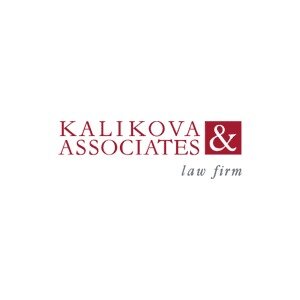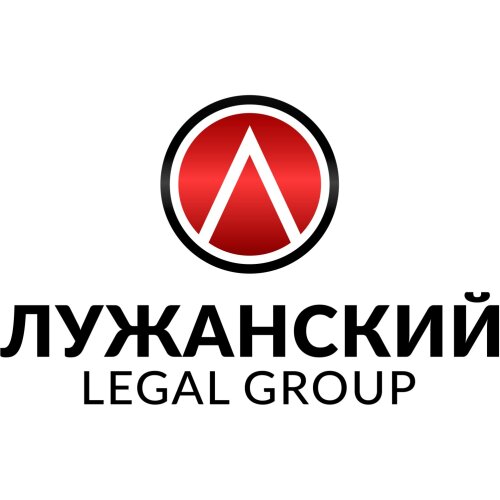Best Water Law Lawyers in Kyrgyzstan
Share your needs with us, get contacted by law firms.
Free. Takes 2 min.
Or refine your search by selecting a city:
List of the best lawyers in Kyrgyzstan
About Water Law in Kyrgyzstan
Water Law in Kyrgyzstan encompasses the body of national legal norms and regulations governing the use, allocation, protection, and management of the country's water resources. Kyrgyzstan, endowed with significant water resources due to its mountainous terrain, has developed a comprehensive legal framework to address both public and private interests in water for irrigation, drinking, industrial use, and environmental protection. The Water Code of the Kyrgyz Republic, adopted in 2005, serves as the principal legislation, aiming to ensure the rational, equitable, and sustainable use of water resources.
Why You May Need a Lawyer
Navigating Water Law in Kyrgyzstan can be complex due to overlapping interests among individuals, businesses, and state authorities. You may require legal assistance in situations such as:
- Securing water use rights for agriculture, industry, or housing developments
- Resolving disputes over water allocation or boundary-related water issues with neighbors
- Complying with environmental regulations regarding wastewater discharge and water conservation
- Challenging administrative decisions made by local or national water authorities
- Negotiating transboundary water use or access with neighboring communities or businesses
- Understanding your obligations under water protection laws as a landowner or business operator
- Dealing with consequences of drought or water scarcity or seeking compensation for water-related damages
A lawyer specialized in Water Law can guide you through bureaucratic processes, protect your interests, and help interpret legislative requirements specific to your circumstances.
Local Laws Overview
Kyrgyzstan’s Water Law framework is based primarily on the Water Code, complemented by various governmental resolutions, decrees, and regional statutes. Here are key aspects:
- The Water Code defines ownership, use rights, and categorization of water bodies (public, private, special significance)
- All water resources are property of the state, but use rights (including withdrawal, drainage, and waste discharge) may be granted to individuals and organizations via permits and licenses
- Water use prioritizes drinking and household needs, followed by municipal, agricultural, industrial, and ecological requirements
- Special attention is given to the protection of water bodies from pollution, overuse, and illegal construction near rivers and reservoirs
- There is a focus on sustainable and equitable water distribution, particularly in times of scarcity
- Transboundary water management is addressed through bilateral and regional treaties, given many rivers cross into neighbor countries
- Penalties exist for unlicensed use, pollution, and infractions against water infrastructure
Understanding these primary regulations is essential for anyone involved in water use or facing related legal challenges in Kyrgyzstan.
Frequently Asked Questions
What is the main law governing water use in Kyrgyzstan?
The main law is the Water Code of the Kyrgyz Republic, which outlines how water resources are managed, protected, and allocated.
Who owns water resources in Kyrgyzstan?
All surface and underground water resources in Kyrgyzstan are owned by the state. However, individuals and entities can obtain rights to use water through permits or licenses.
How can I obtain a permit for water use?
You need to apply to the relevant local or national water authority, submit documentation describing intended use and volume, and comply with the procedures outlined in the Water Code and associated regulations.
Are there restrictions on building near rivers and lakes?
Yes. The law outlines protected coastal belts where certain activities and construction are restricted to prevent pollution and preserve the environment.
What happens if someone uses water illegally?
Unauthorized water withdrawal, pollution, or construction is subject to administrative fines, suspension of activities, or criminal liability, depending on the severity of the violation.
Can water rights be transferred to another person?
In most cases, water use rights are not fully transferable but can sometimes be reassigned or inherited with approval from authorities, depending on the specific case.
How are water disputes resolved?
Disputes may be settled through negotiation, mediation, or, if necessary, in court. Specialized courts or administrative hearings may also deal with complex water disputes.
Are there environmental regulations related to water use?
Yes. Users must comply with waste discharge limits, treat contaminants, and take measures to avoid harming ecosystems, as set out in environmental protection laws and the Water Code.
What should I do if my water rights are violated?
Gather evidence of the violation and contact the water authority or an attorney. You can file a complaint or initiate legal proceedings as necessary.
Do international agreements affect water law in Kyrgyzstan?
Yes. Kyrgyzstan participates in regional agreements regulating shared use and management of transboundary rivers with other Central Asian countries.
Additional Resources
If you need more information, consider reaching out to the following:
- Ministry of Agriculture (Department of Water Resources and Land Reclamation)
- State Agency for Environmental Protection and Forestry
- Local government offices responsible for water management
- Public ecological organizations specializing in water issues
- Legal aid clinics that provide consultation on environmental and natural resource law
- Research centers and universities with programs on water resource management
Next Steps
If you believe you need legal advice or representation related to Water Law in Kyrgyzstan, follow these steps:
- Identify the specific issue or dispute you are facing in relation to water use or rights
- Gather all relevant documents and evidence, such as permits, correspondence, and photographs
- Contact a qualified lawyer or legal aid service with experience in environmental or Water Law
- Seek initial consultation to better understand your rights and possible actions
- Cooperate with your lawyer to prepare documentation, file applications, or represent you before authorities or in court
- Stay informed about changes in water-related laws and regulations that may impact your situation
Understanding your rights and obligations is the first step to successfully navigating any challenges with Water Law in Kyrgyzstan. Consulting with an experienced legal professional can help protect your interests and ensure compliance with the law.
Lawzana helps you find the best lawyers and law firms in Kyrgyzstan through a curated and pre-screened list of qualified legal professionals. Our platform offers rankings and detailed profiles of attorneys and law firms, allowing you to compare based on practice areas, including Water Law, experience, and client feedback.
Each profile includes a description of the firm's areas of practice, client reviews, team members and partners, year of establishment, spoken languages, office locations, contact information, social media presence, and any published articles or resources. Most firms on our platform speak English and are experienced in both local and international legal matters.
Get a quote from top-rated law firms in Kyrgyzstan — quickly, securely, and without unnecessary hassle.
Disclaimer:
The information provided on this page is for general informational purposes only and does not constitute legal advice. While we strive to ensure the accuracy and relevance of the content, legal information may change over time, and interpretations of the law can vary. You should always consult with a qualified legal professional for advice specific to your situation.
We disclaim all liability for actions taken or not taken based on the content of this page. If you believe any information is incorrect or outdated, please contact us, and we will review and update it where appropriate.
Browse water law law firms by city in Kyrgyzstan
Refine your search by selecting a city.











